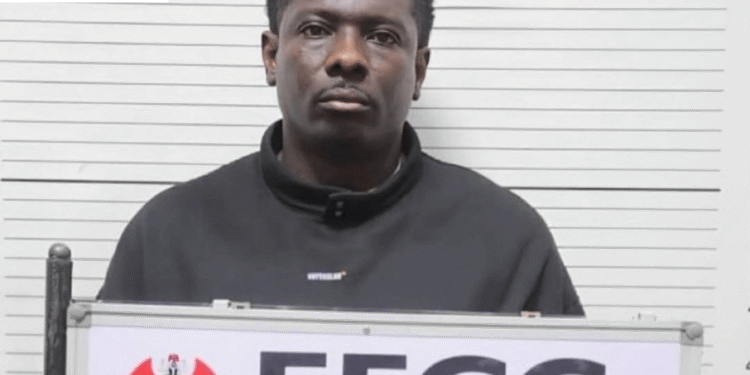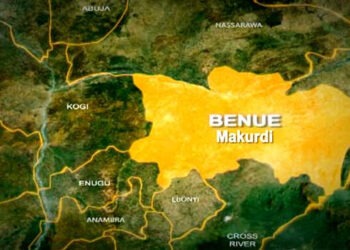On Friday, a Federal High Court in Lagos ordered the remand of Terry Alexander Ejeh, better known as Terry Apala, a hip-hop artist accused of abusing naira.
Before postponing the case to May 5th for trial, the judge also mandated an expedited hearing.
His remand in the Ikoyi Correctional Centre in Lagos was imposed by Justice Akintayo Aluko until May 5, 2025, when his bail request would be considered and decided.
Ejeh was charged with one count of naira misuse by matching on it while dancing at a social gathering at Madison Place, Oniru, Lagos Island, by the Economic and Financial Crimes Commission, or EFCC.
Sulaimon Sulaiman, the EFCC’s counsel, then requested that the court permit the defendant to be read the charge so that he might enter a plea.
Sulaimon requested a trial date and the remand of the defendant in the custody of the Nigeria Correctional Centre after the defendant entered a not guilty plea to the charge.
However, Felix Nwakbudu, the defendant’s attorney, told the court that his client had submitted a pending bail application.
Nwakbudu appealed to the court to permit him to submit the application after stating that the prosecution had received a copy of the bail summons this morning.
Because he would need time to review the application and respond appropriately, the prosecutor objected to the hearing of the bail application.
In his ruling, Justice Aluko ordered the remand of the defendant at the Ikoyi Correctional Centre pending the hearing and determination of his bail application.
The judge also ordered an accelerated hearing of the trial before adjourning the matter till May 5th for trial.
The charge against the defendant reads: “That you, TERRY ALEXANDER EJEH, on the 5th day of January 2025 at Madison Place, Oniru, within the jurisdiction of this Honourable court, whilst dancing during a social event, tampered with Naira currency issued by the Central Bank of Nigeria by stepping on it, and you thereby committed an offence contrary to and punishable under Section 21(1) of the Central Bank of Nigeria Act 2007.”




































